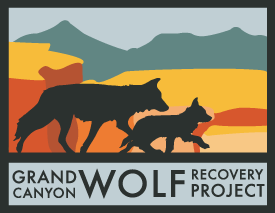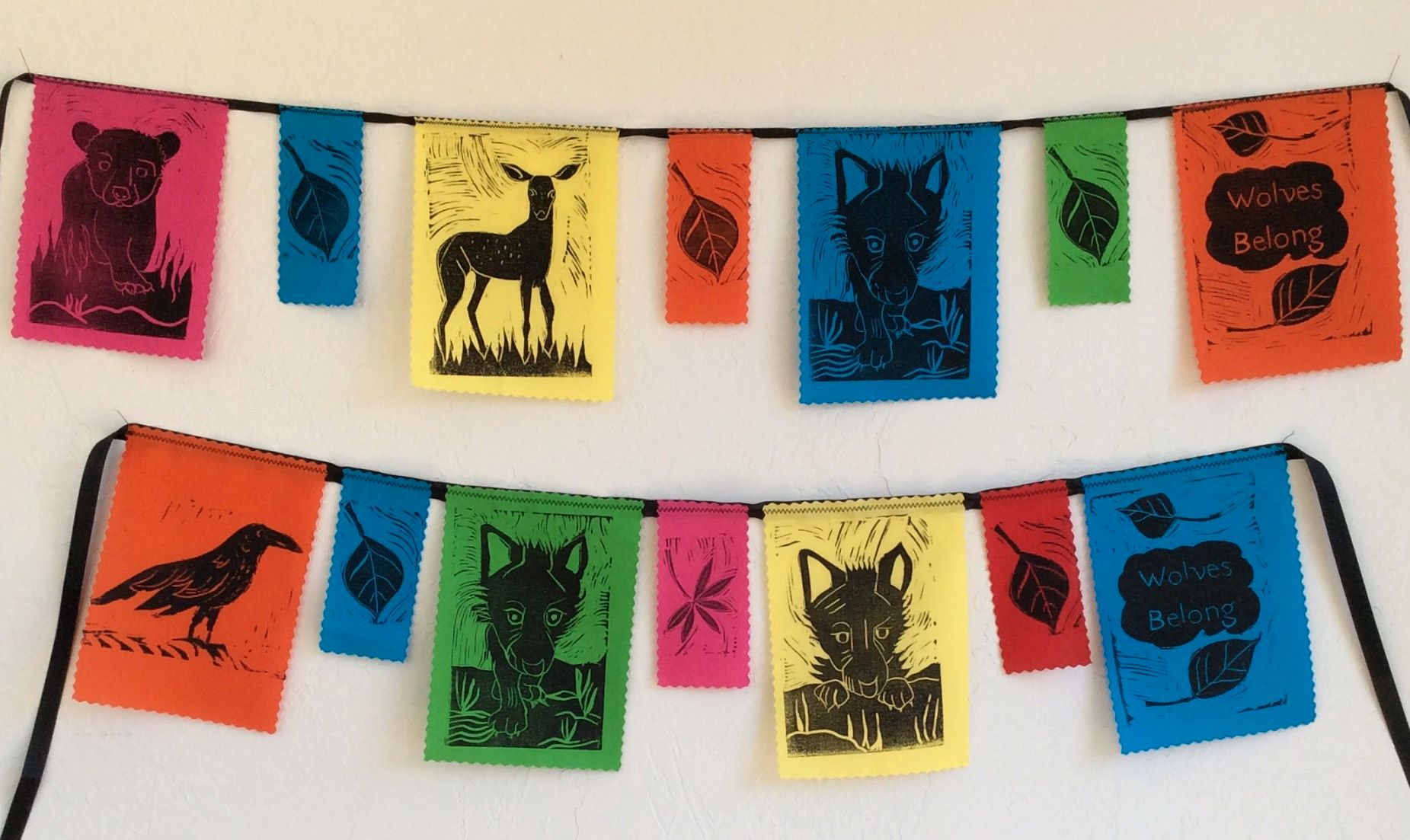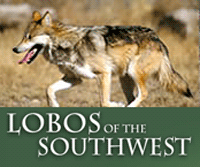Bookmans | November 13, 2009
Bookmans is proud to help support the Grand Canyon Wolf Recovery Project, a local coalition working to bring the Mexican gray wolf back to the Grand Canyon region. Bookmans has always put animal welfare at the top of our priority list, and this is an opportunity to do our part to help save the most endangered mammal in North America. Bookmans supports the coalition by offering incentives to volunteers, providing gifts for auctions and raffles, and offering coupons for children in classrooms learning about the plight of the wolves.
The following information was provided by Emily Nelson, the Education and Outreach Coordinator:
Mexican gray wolves were listed for protection under the Endangered Species Act in 1976. Thirty-three years later, the Mexican gray wolf remains the most endangered mammal in North America. At the end of 2008, only 52 wolves and 2 successful breeding pairs lived in the wilds of the Southwest, and this is the primary coalition working to increase that number.
Under the goals of the Endangered Species Act, full recovery of the Mexican wolf requires not only that the current population reach greater numbers, but that the wolf also be recovered to all significant portions of its historic range. The Grand Canyon region needs wolves for ecological balance. Scientific research indicates that this region, extending from the Mogollon Rim in Arizona all the way up to the high plateaus of southern Utah, can sustain at least 200 wolves. The Grand Canyon Wolf Recovery Project is working to create a grassroots organization of citizens who support wolf recovery in the Grand Canyon.
Our coalition partners include the Grand Canyon Wildlands Council, Defenders of Wildlife, Center for Biological Diversity, Animal Defense League of Arizona, Northern Arizona Audubon Society, Sierra Club - Grand Canyon Chapter, The Rewilding Institute, the Phoenix Zoo, Habitat Harmony Inc., Arizona Wilderness Coalition, and the Humane Society of the United States.
In 2005, we instituted a state-wide poll through the Social Research Laboratory at Northern Arizona University, which found that 81% of those polled support wolf migration to northern Arizona.
We regularly engage a core of about 100 dedicated volunteers in events, tabling, and outreach.
With the help of our dedicated volunteers, over the last three years we have held 18 well-attended events to build support for wolves in the Flagstaff and Grand Canyon communities, distributed information through tabling at over 30 public forums, and successfully educated over 3,000 people from the U.S. and abroad by tabling at the North and South rims of Grand Canyon National Park.
Our strategies for wolf recovery in the Grand Canyon region consist of several key approaches:
1) Work within the ongoing and upcoming processes to change management policies inhibiting wolf recovery, including those that prohibit re-colonization of the southern part of the Grand Canyon region.
2) Engage and influence the National Park Service (NPS) and other key land management agencies.
3) Build public and political support for the restoration of wolves to the Grand Canyon region.
Grand Canyon Wolf Recovery Project have had many more accomplishments this year than we can possibly list here, including meeting with the Superintendent of Grand Canyon National Park three times in 2009, leading workshops for National Parks employees, tabling at countless events, leading panel discussions with major players in wolf conservation, service learning camping trips, screening films like Lords of Nature: Life in a Land of Great Predator, and hosting an interactive wolf art installation in collaboration with artist Lauren Strohacker. The artwork, titled “No(where), Now(here)”, features Mexican wolf silhouettes created out of paper and wood that were released into historic downtown Flagstaff.
Most importantly, the US Fish and Wildlife Service Regional Director has decided to keep several alpha wolves in the wild this year. We feel this decision is a direct result of input by our organization, members, and partner groups striving for a uniform message against the removal of Mexican wolves from the wild.





